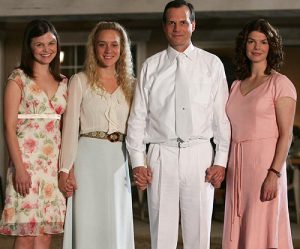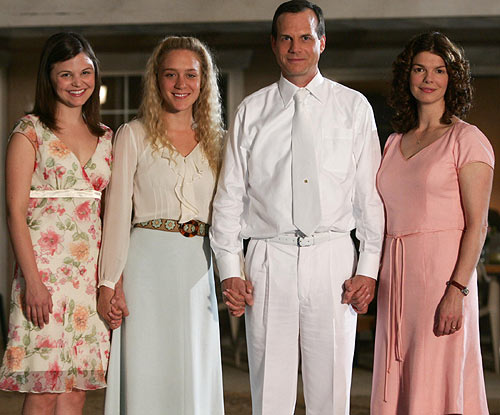Email: cascade.news@ufv.ca
 In what could be a legislation-changing trial in the B.C. Supreme Court, the constitutionality of polygamy laws will be challenged in Vancouver on Monday. The witnesses being called to testify include former residents of Bountiful, British Columbia’s breakaway Mormon sect the Fundamentalist Church of Jesus Christ of Latter Day Saints. The trial is expected to review whether the Criminal Code section making polygamy illegal violates individual religious freedom rights.
In what could be a legislation-changing trial in the B.C. Supreme Court, the constitutionality of polygamy laws will be challenged in Vancouver on Monday. The witnesses being called to testify include former residents of Bountiful, British Columbia’s breakaway Mormon sect the Fundamentalist Church of Jesus Christ of Latter Day Saints. The trial is expected to review whether the Criminal Code section making polygamy illegal violates individual religious freedom rights.
Polygamy has been a topic of interest within British Columbia since last year when it was revealed that former Church of Latter Day Saints Bishop Winston Blackmore was being charged with one count of polygamy. Blackmore, who has 25 wives and over 136 children, had his charges thrown out later in the year when it was found that prosecution lacked evidence to charge him.
In a move that saw the Bountiful community split in half, Blackmore was excommunicated by Fundamentalist Church of Jesus Christ of Latter Day Saints church president Warren Jeffs in 2002.
Laws against the practice of polygamy go as far back as 1890 in Canada according to the Province. They are clearly laid out in section 293 of the Canadian Criminal Code, which stipulates that anyone who knowingly “practices or enters into or in any manner agrees or consents to practice or enter in to any form of polygamy, or any kind of conjugal union with more than one person at the same time” can be found “guilty of an indictable offence and liable to imprisonment for a term not exceeding five years.”
Religion should not be allowed to ride roughshod over laws laid out in the Canadian Criminal Code. If a religion does not conform to the laws laid down by government, which are generally accepted in society as a means of keeping the peace and deterring criminal behaviour, elements of the religion that go against the law should be prohibited.
The case is nothing more than a man like Blackmore using Canadian law to cloak his own illegitimate lifestyle. Several of Blackmore’s wives have come forward to provide detailed accounts of lives riddled with neglect, frustration, a lack of informed consent concerning marriage, and forced marriage to a man who used the women in his life as his own private harem. Where in such a practice are any elements of religion?
Another point to consider, which was pointed out by constitutional lawyer Ron Skolrood, is that the trial essentially comes down to a couple of prevalent themes, one of which is whether the legislation “addresses the social evils today,” or whether the law is “antiquated,” and really “has no relevance today.”
The governments of British Columbia and Canada are arguing that laws against polygamy should remain, as polygamous wives often suffer from increased “depression, jealousy, and lower self-esteem,” as noted in the Province. Children who come from homes where polygamy is the norm are also commonly behind classmates in academic achievement, the article also points out.
These facts are not surprising as it is difficult to imagine a situation where a man could be a father to as many as several dozen children, while adequately supporting a mother or mothers.
The issues brought up by the government of BC and Canada are not simply archaic practices of a long forgotten religious sect, but are happening in present day communes such as in Bountiful. As members of society we have ignored the issue for too long, and the potential detrimental effects of allowing individuals to continue with such irresponsible behaviour will affect people for generations to come.
The only solution that remains is one that has been adopted by the British Columbia Civil Liberties Association. That is to change the legislation so that it more adequately reflects the current landscape of polygamy. This will involve offering support for mothers and children who wish to leave the sects, assuring that children of a polygamous union receive a proper education, allowing families to access social services benefits, and making sure that families feel comfortable bringing allegations of sexual abuse to the authorities for investigation.


